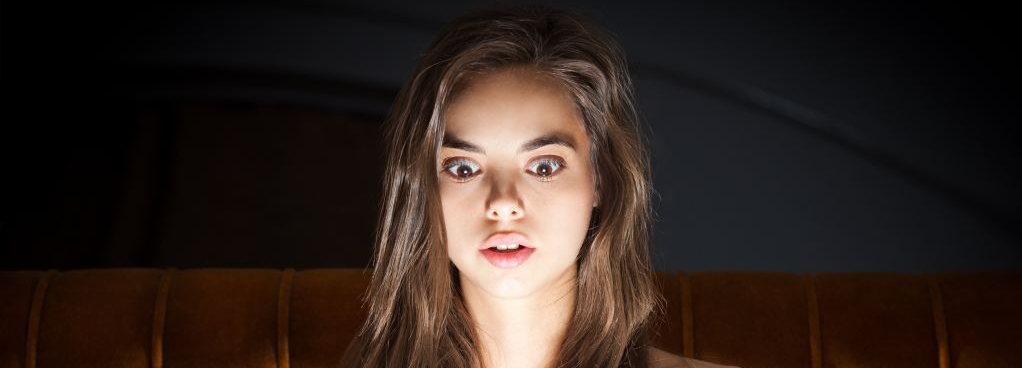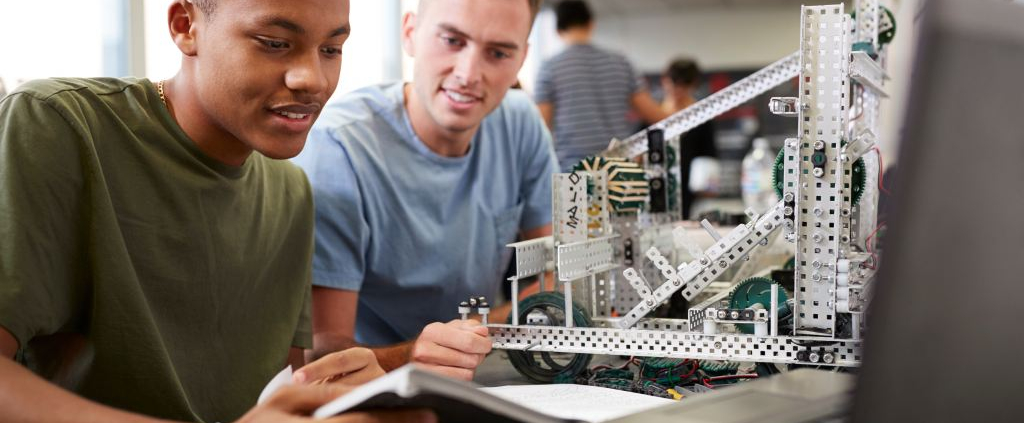When it comes to helping your student craft their college list, fit is the most important decision factor. This is especially true when your child has a disability and needs extra support and accommodations to be successful in college. Hundreds of colleges and universities across the U.S. offer campus resources, programs, and services tailored to students with disabilities — whether your child wants to attend a private or public college, they have options.
Research is crucial to pinpoint the choices that best align with your student’s unique needs. Keep reading to learn more about schools with specialized programs that can help your student enjoy a fulfilling college life.
How to Select a College for Students with Disabilities
All colleges and universities are required under the Americans with Disabilities Act (ADA) to provide reasonable disability accommodations for students who need them. While some institutions meet the minimum standards, many go above and beyond. IvyWise counselor Kimberly works with students who have language-based learning disabilities. She advises parents and students to “really reflect on the level and kind of support they need before entering their college search.” This is an important consideration as you make a college list with your student.
So, what kind of support is available? Every institution is required to make academic adjustments, such as allowing extended time for tests and assignments, providing assistive technologies, recording lectures, offering materials in braille, and making other reasonable accommodations to help disabled students within the academic environment. Buildings also need to be accessible, with ramps, stair rails, elevators, and other accommodations for students with a physical disability.
Many schools offer more robust programs and resources for students that allow them to enjoy a richer college experience both inside and outside of the classroom. These programs may include academic coaching, tutoring, peer mentoring, study groups, therapy, executive function coaching (such as help with time management skills), career prep, and assistance with social and life skills. In many cases, these programs are run by disability specialists who can tailor accommodations and services to the individual student’s needs.
Best Universities & Colleges for Students with Disabilities in 2024
There are hundreds of universities and colleges across the U.S. offering great options for students with various disabilities, including these colleges for autistic students. Program offerings and levels of support vary by institution.
Colleges for Students with Physical Disabilities
University of Illinois Urbana-Champaign: Students registered with Disability and Educational Services (DRES) are assigned to an access specialist who works with faculty to ensure the student’s needs are met. Additionally, they can compete with their peers in wheelchair sports like basketball and track and road racing. A wellness gym is also available for physical therapy and fitness.
Southern Illinois University: Students with a physical disability at this Carbondale campus can take advantage of Access Inclusive Recreation (AIR), which includes accessible facilities, programs, and services. SIU also offers fee-based boxing classes for students with Parkinson’s Disease. Students must submit a referral to participate in AIR.
University of Florida: One of the newer residence halls on the UF campus in Gainesville is Cypress Hall, which was designed exclusively for students with physical disabilities. The residence hall features a lift system in some rooms, full XL beds, and a communal kitchen on each floor. In addition, the Delta Alpha Pi honor society was established in 2018 to recognize high-achieving students with disabilities.
Ball State University: The Office of Disability Services at Ball State in Muncie, Indiana, offers a range of accommodations and resources for students and advocates for disability awareness by coordinating campus-wide events for Disability Awareness Month. Students can participate in the Alliance for Disability Awareness, which meets monthly and hosts a book club, intramural sports, and other events. Students without disabilities are welcome, too.
Colleges for Hearing-Impaired Students
Gallaudet University: Located in Washington, D.C., Gallaudet University was established specifically for the deaf and hard of hearing. Students can choose from more than 40 undergraduate areas of study, participate in NCAA athletics, and connect with their peers in student clubs and organizations.
National Technical Institute for the Deaf (NTID): A part of the Rochester Institute of Technology (RIT) in Rochester, New York, NTID is the largest technological college for hearing-impaired students in the world. More than 1,000 NTID students study and live among RIT students, pursuing associate and/or bachelor’s degrees in a wide range of disciplines.
SouthWest College for the Deaf (SWCD): Established in the Howard College District in Big Spring, Texas, SWCD is the only self-contained community college for the hearing impaired in the U.S. American Sign Language is the primary means of communication. Opportunities for students at SWCD include clubs and organizations, internships, and athletics.
Colleges for Students with Intellectual Disabilities
California State University Northridge (CSUN): CSUN Explorers is a two-year, non-degree educational program catering to adults ages 18-28 with intellectual and developmental disabilities. Participants can take two classes per semester through open enrollment and participate in other aspects of student life. Internships are available the second year.
Auburn University: The EAGLES Program at this Auburn, Alabama, college campus provides opportunities for students with intellectual disabilities to participate in a two- or four-year college experience. This is a non-degree program that prepares students to live independently and pursue their career goals.
Colleges for Students with Learning Differences
Beacon College: Founded in 1989 by a group of parents, Beacon College in Leesburg, Florida, is the first accredited college in the U.S. offering undergraduate programs designed around the needs of students with learning differences. They offer both bachelor’s and associate degrees in an environment specifically created to help students thrive and succeed.
Landmark College: Located in Putney, Vermont, Landmark College caters specifically to students with dyslexia, ADHD, autism, and executive functioning challenges. Students have access to diagnosis-specific support, therapy dogs, athletic and recreational programs, and study abroad opportunities while they follow an educational path that accommodates their unique learning styles.
Bellevue College: The Occupational and Life Skills Bellevue College (OLSBC) associate degree program at this suburban Seattle campus gives students with learning disabilities the opportunity to acquire an accredited college degree. The curriculum is occupational and life skills-based, and post-graduation employment rates for students in the program are well above the national average for workers with disabilities.
American University: First-year students at American University in Washington, D.C., can enroll in the intensive Learning Services Program (LSP) for weekly meetings with a program coordinator or counselor. LSP students attend a special section of the first-year writing class, meet weekly with a writing coach, and are paired with an upperclassman who is their LSP mentor.
DePaul University: The Center for Students with Disabilities (CSD) at DePaul University in Chicago is open to a variety of students dealing with cognitive and/or physical challenges. Students receive the support they need to achieve their academic goals and learn how to be more independent. CSD works across the university departments to provide reasonable accommodations and access to students in the program.
Drexel University: The Center for Autism and Neurodiversity (CAN) on this Philadelphia campus helps students build academic, social, and self-advocacy skills, and learn how to live independently. Students enrolled in CAN work one-on-one with coaches and advisors, participate in weekly study and social hours, and join in planned social events.
Hofstra University: The Program for Academic Learning Skills (PALS) at Hofstra University in Hempstead, New York, caters to students with learning differences. Students are paired with a learning specialist who meets with them one-on-one every week to work on learning strategies and executive functioning skills. PAL students must commit to one year in the program but have access to their learning specialist for the duration of their time at Hofstra.
Marist College: The Learning Disabilities Support Program at Marist College in Poughkeepsie, New York, pairs each student with a learning specialist. First-year students meet with their specialist twice a week to work on learning strategies and support with time management and organization. Students become more independent as time goes on but are given the tools to discuss their learning issues and needs with professors.
Marshall University: The College Program for Students with Autism Spectrum Disorder at Marshall University in Huntington, West Virginia, provides students with the support they need to achieve success in college and prepare for a career. Students in the program receive help with social, communication, academic, leisure, and personal living skills and can receive either individual or small group mentoring.
Northeastern University: In the Learning Disabilities Program (LDP) on this Boston campus, students work with a learning specialist for one hour, twice a week. These meetings focus on the student’s goals, coursework, and learning style and may address learning strategies, executive functioning, reading, writing, and use of accommodations.
University of Arizona: Students enrolled at the Strategic Alternative Learning Techniques (SALT) Center on the Tucson campus meet weekly with a student support specialist to focus on academic and personal goals. Other services include tutoring, workshops, wellness and psychological services, and access to assistive technology.
University of Connecticut: The main campus in Storrs offers the Beyond Access (BA) program, which provides academic support as well as help with personal growth and career readiness. Students in the program work with a strategy instructor to identify strengths and challenges, then create goals to help them achieve success. BA offers individualized support and group activities.
University of Denver: Students in the Learning Effectiveness Program (LEP) have access to a variety of resources to support their learning and personal growth. LEP provides academic skills counseling, tutoring, executive functioning support, social skills and events, and college transition support.
University of Iowa: UI REACH (Realizing Educational and Career Hopes) at the University of Iowa in Iowa City is a comprehensive transition program that focuses on helping students make the most of academics and campus life while also preparing them to transition to a career. Students have access to consultive services after graduation to assist with career development, finding employment, and living independently.
University of the Ozarks: The Jones Learning Center (JLC) at this campus in Clarksville, Arkansas, is a comprehensive program that offers two tracks based on the level of support the student needs. Students work with an academic program coordinator on learning strategies and have access to writing specialists, tutors, small group study/lab sessions, and testing accommodations.
Can You Get into Harvard with a Learning Disability?
Students with learning differences can and do get accepted to Harvard University — in fact, Harvard has become more welcoming in recent years to special needs students if they meet the admissions criteria and demonstrate a strong desire to learn. Harvard complies with the ADA by offering reasonable accommodations for disabled students. However, students who need a higher level of support may find more success elsewhere.
High school students who are considering Harvard should reach out to the university’s disability resources office to find out more about their accommodations. It’s also helpful to know how to get into Harvard so your student can prepare the strongest application possible and share their unique perspective in their essays.
Scholarships for Students with Disabilities
To make education even more accessible for disabled students, many private organizations offer scholarships. Learn more about how to find and apply for scholarships, but here are a few opportunities to get started.
Scholarships for Vision-Impaired Students
- The National Federation of the Blind awards more than $250,000 in scholarships annually to students with visual disabilities who demonstrate academic excellence, leadership, and community service.
- The American Council of the Blind offers scholarships to undergraduate and graduate students who meet the criteria. Awards range from $2,000 to $7,500.
- The Lighthouse Guild awards multiple scholarships each year to talented legally blind high students across the U.S.
Scholarships for Hearing-Impaired Students
Scholarships for Students with Learning Differences
Scholarships for Any Disability
Every student’s needs, preferences, and goals are different, which is why it is so important to do your research and stay true to your student’s priorities. If you are beginning the college search and looking for advice as you compile your list of schools, our team of college admissions experts can provide personalized guidance. Schedule an Initial Consultation today to learn more.




